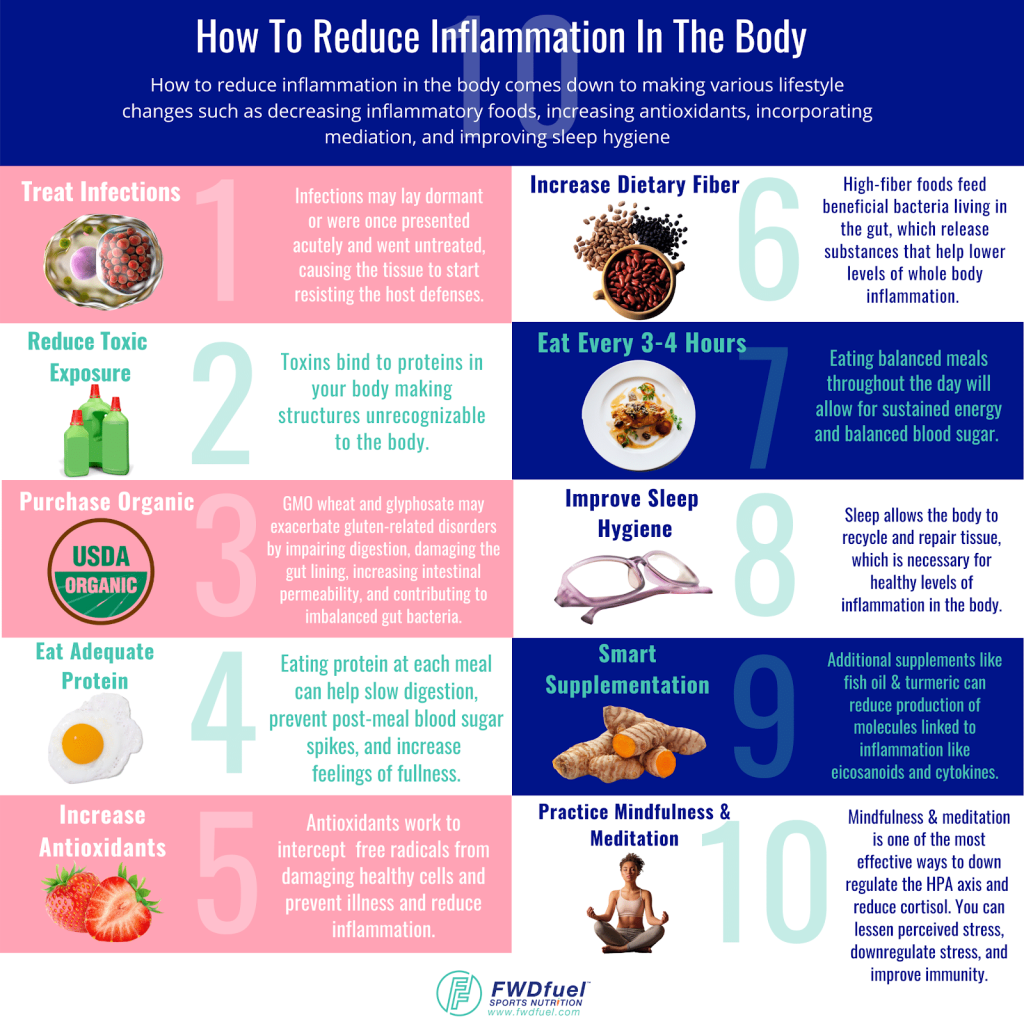Inflammation is a natural response of the body to injury or infection, but chronic inflammation can lead to various health issues, including heart disease, diabetes, and autoimmune disorders. Understanding how to reduce inflammation in the body is crucial for maintaining overall health and preventing these conditions. In this article, we will explore effective methods and lifestyle changes that can help you combat inflammation and promote a healthier, more vibrant life.
As you delve deeper into this topic, you will learn about the role of diet in inflammation management, including specific foods that can either exacerbate or alleviate inflammation. We will also discuss the importance of physical activity and how regular exercise can serve as a powerful tool in reducing inflammation levels. Additionally, we will cover stress management techniques and their impact on your body’s inflammatory response.
By the end of this article, you will be equipped with practical tips and actionable strategies to help you reduce inflammation in your body effectively. Whether you are looking to improve your overall health or address specific inflammatory conditions, the insights provided here will guide you on your journey to better well-being. So, keep reading to discover how simple changes can make a significant difference in your health!
Dietary Changes to Combat Inflammation
One of the most effective ways to reduce inflammation in the body is through dietary changes. Consuming a diet rich in anti-inflammatory foods can significantly impact your overall health. Foods such as fatty fish, nuts, seeds, fruits, and vegetables are known for their anti-inflammatory properties. For instance, fatty fish like salmon and mackerel are high in omega-3 fatty acids, which have been shown to lower inflammatory markers in the body. Incorporating these foods into your daily meals can help create a balanced diet that supports your body’s natural defenses against inflammation.
In addition to including anti-inflammatory foods, it is equally important to avoid those that can trigger inflammation. Processed foods, sugary beverages, and trans fats are known culprits that can exacerbate inflammatory responses. By reducing the intake of these harmful substances, you can help your body maintain a healthier inflammatory balance. Furthermore, adopting a Mediterranean diet, which emphasizes whole grains, healthy fats, and a variety of fruits and vegetables, has been linked to lower levels of inflammation and improved overall health.
Regular Physical Activity and Its Role in Reducing Inflammation
Engaging in regular physical activity is another crucial factor in reducing inflammation in the body. Exercise has been shown to have numerous health benefits, including the reduction of inflammatory markers. Moderate-intensity activities, such as walking, cycling, or swimming, can help improve circulation and promote the release of anti-inflammatory cytokines. These proteins play a vital role in regulating the immune response and can help mitigate chronic inflammation.
Moreover, incorporating strength training into your fitness routine can also contribute to lowering inflammation. Resistance exercises not only build muscle but also enhance metabolic health, which is essential for managing inflammation. Aim for at least 150 minutes of moderate aerobic activity each week, combined with two days of strength training, to maximize the anti-inflammatory benefits of your exercise regimen. Remember, consistency is key; making physical activity a regular part of your lifestyle can lead to long-term improvements in your inflammatory status.
| Method | Description |
|---|---|
| Healthy Diet | Incorporate anti-inflammatory foods such as fruits, vegetables, nuts, seeds, and whole grains. Omega-3 fatty acids found in fish and flaxseeds are particularly beneficial. |
| Regular Exercise | Engage in regular physical activity, such as walking, swimming, or cycling, to help reduce inflammation and improve overall health. |
| Stay Hydrated | Drink plenty of water throughout the day to help flush out toxins and support bodily functions. |
| Manage Stress | Practice stress-reducing techniques such as meditation, yoga, or deep breathing exercises to lower inflammation levels. |
| Adequate Sleep | Ensure you get enough quality sleep each night, as poor sleep can contribute to increased inflammation. |
| Avoid Processed Foods | Limit intake of processed foods, sugars, and trans fats, which can promote inflammation in the body. |
| Supplements | Consider supplements like curcumin, ginger, or omega-3 fatty acids after consulting with a healthcare provider. |
| Limit Alcohol | Reduce alcohol consumption, as excessive drinking can lead to increased inflammation. |
| Quit Smoking | Avoid smoking and exposure to secondhand smoke, as they are known to increase inflammation. |

